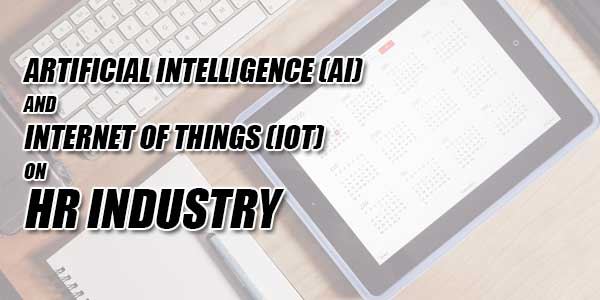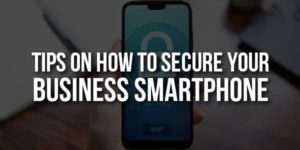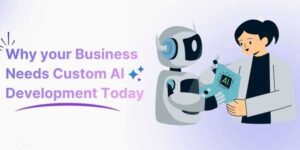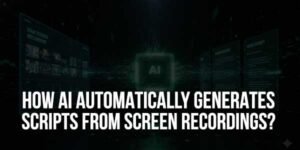
Consumers bought more than 45 million wearable devices and fitness trackers in 2015, and as per a report by IDC, analysts expect demand to grow by more than 45 percent annually through 2019, becoming one of the fastest-growing technology markets.
What are these wearable devices doing for us? They are giving us information on our exercise, sleep, movements, diet, and pulse, creating the quantified self, powered by an architecture of technology referred to as the Internet of Things (IoT).
Every few years, a new technology breakthrough reaches us and changes our lives and things as we know them. Whether it is the steam-powered first industrial revolution (18th – early 19th century), the replacement of steam with electricity in the second (between late 19th – mid 20th century), or the automation drive of the third (second half of 20th century), every revolution has brought with it changes that would have been unanticipated before its inception. So, as we stand at the cusp of Industry 4.0, it is almost inevitable to think how it’ll impact our professional worlds.
Artificial Intelligence and Internet of Things are the buzzwords of today, and they have far-reaching impact in all aspects of our lives.
Let us find out how AI and IoT are impacting the Human Resource industry today.
Table of Contents
Changing The Way We Source And Recruit:
What drives potential employees to join certain organizations? How do organizations find the right talent as the fight for suitable talent increases? And in the midst of it all, how can we reduce recruitment costs? The landscape today is dotted with recruiters doing the meticulous job of exploring employment websites for suitable profiles and yet we all know the success rates of this exercise.
Artificial Intelligence (AI) is going to change the way resumes are sourced, searching the same number of resume sites. With predictive analytics using neuro-linguistic programming (NLP), it can analyze the past success records in a particular job profile and then evaluate the available talent pool to recognize the most suitable candidates with the adequate skill sets and experience. With video-based interviewing, face expressions, choice words, voice modulation, quality of responses could be reviewed to spot creativity, subject matter knowledge, and intelligence of the candidate while eradicating recruiter’s personal biases.
Candidate Engagement And Re-Engagement:
Once the candidate applies for the job through a career portal, it takes some time to get back to them. This can often leave the applicants impatient and clueless of the situation. This process can be automated using Artificial Intelligence. How? By sending automated emails or messages keeping the candidates engaged and letting them know that the process is still on.
Also, unsolicited applications often go unnoticed after they apply or after the job application is closed. AI might allow you to re-examine specific candidates determining their interest level in a role using engagement opportunity and using that opportunity to update their individual records which might have gotten updated since last time they were engaged saving a lot of time to look for new candidates or applications.
Virtual Reality In The On-Boarding Process:
Ever heard of the old joke, “The new employees can’t even find a bathroom on their first day.”? Onboarding will be made more effective and reliable with VR. Each employee could get the office tour on their smartphones; they could meet their colleagues, listen to their leaders on smartphones, which would enhance the process of acculturalization.
Google Cardboard is a great example of VR onboarding tool. Hours spent on reviewing PowerPoint presentations or chasing speakers will be a thing of the past.

Fewer Redundancies And Quicker Work:
What driverless cars are to automobile enthusiasts are what AI will be to the HR Industry. Confused? Imagine a scenario where all the work related to mass documentations like new joining documents, account payable, invoices, etc., is being given to robots. Robotic process automation (RPA) learns how a worker does a repetitive task and can do the same task with zero errors. And remember, robots don’t need a bathroom, team, or lunch break! Convenience and accuracy will be greatly increased with the use of AI.
Even for HR help desks, mundane queries related to policies, processes, etc., will be addressed with speed and precision with chat applications like Slack, Facebook messenger, etc., or robots answering the queries over the phone. Only the difficult or unique queries will be directed to specialized HR resources.
Personalized Learning Programs Catering To Individual Needs:
Companies these days spend a lot of time on role-based programs, e.g., new Manager program, new Director program, etc. All the new employees have to go through one common program. But it must be kept in mind that each individual learns at a different pace and has different progress rates and the program is supposed to run as per their ability to learn. Companies may find it cumbersome.
This is a problem that AI is going to solve. Machine learning algorithms, programs that glean patterns from data and provide insights and suggestions assist employees to find gaps in their areas and weaknesses to where they should be focusing. AI also enables personalized learning programs based on employee information; skill set, experience, behaviors and learning patterns.
It can also provide a tailored career path based on the potential, strengths, experience & exposures, career aspirations and learning agility. Game-based learning make learning more fun and personalized. TED talk, YouTube, digital books are becoming a common platform for learning. AI will introduce a whole new world of learning to the employees and will make the lives of those working in HR much easier.
Employee Engagement Using Wellness Apps:
Employee engagement activities are no longer limited to fun activities – office parties, off sites, team building events, cooking competition, etc. People and companies are moving towards health and fitness tracking as a significant aspect for employee engagement.
There’s a substantial use of internet of technology (IoT) in engagement health and fitness tracking. It is difficult to create a common engagement programme in companies where employees are distributed at different locations or are mostly working from home. With the help of fitness apps and virtual fitness coaches, companies are formulating engagement programs where people could compete with each other and stay involved through these apps. Lose to win a contest, step challenges, etc., are some examples which we could see getting common as engagement programs in the corporate.
Performance Management Through Analytics:
Top competitors and high-achieving teams, whether they are elite athletes, top chefs or winning businesses–stay hungry for day-to-day development. A winning coach gives his/her elite performer feedback before, during and after the game, not after the season is over.
Similarly, Organizations today are moving away from annual or periodic review to instant/real-time feedback. The technology is helping in this big transition where it was discovered that the performance cycle of filling forms and holding meetings spent a lot of hours. Digital tools, technologies, and intelligent machines can change people development, enabling supervisors to trace contributions from individuals and teams with more accuracy and solid data. They can also help supervisors measure outcomes with better transparency and impact because appraisals can be more closely linked in time to the particular performance being evaluated.
A more fact-based, smart data-driven approach to performance management helps enable at least two important developments. First, it makes the evaluation process more open, fair, and transparent based on clear and comprehensible data. Second, high-quality data can be used to steer people’s performance in a more influential way. The coach is no longer just another human being who offers advice but also an artificial intelligence-enhanced app that works alongside you. It helps mentor and guide you to particular actions—maybe to connect with a new group of colleagues or new knowledge sources or even a lifestyle change.

 About the Author:
About the Author:












Be the first to write a comment.